A.I. ARTIFICIAL INTELLIGENCE: A Dark Sci-Fi Fairy Tale Decoded
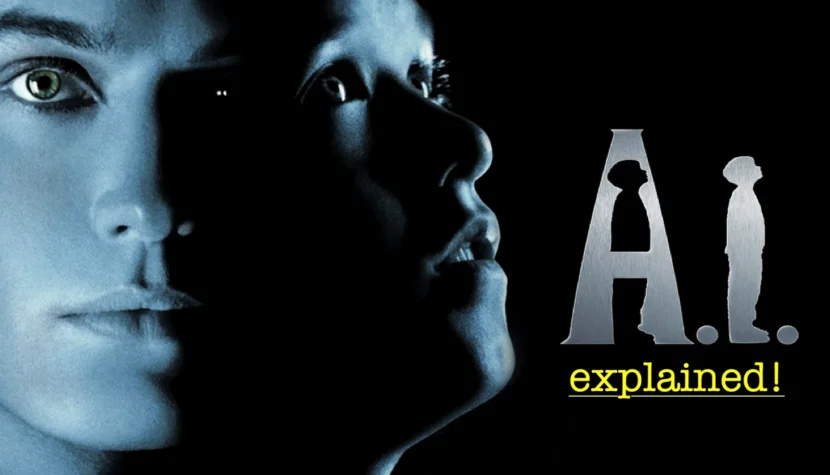
Initially, Stanley Kubrick was supposed to direct it. He acquired the rights to adapt Brian Aldiss’s short story Super-Toys Last All Summer Long in the early 1970s. Aldiss was the first of five people Kubrick commissioned to create a screenplay (besides Aldiss, Bob Shaw, Ian Watson, Arthur C. Clarke, and Sara Maitland also worked on the adaptation over more than a decade). Constant reshuffling among close collaborators, aimed at achieving cinematic perfection, was a regular occurrence for the creator of A Clockwork Orange.
Despite having some exceptionally intriguing developments of the story sketched out by Aldiss, the British director consistently postponed the realization of A.I. Artificial Intelligence, focusing instead on The Shining, Full Metal Jacket, and Eyes Wide Shut. One of the most significant reasons was, in his opinion, insufficiently advanced technology—Kubrick’s secret dream was for the main character, an android named David, to be portrayed by a real robot. After the 2001: A Space Odyssey director’s death in 1999, the project landed in the hands of Steven Spielberg, a non-coincidental choice. Not only a great director but also a good friend of Kubrick, who shared a love of cinema, the same profession, and long phone conversations that had been occurring regularly since the mid-1980s. Bonnie Curtis, Spielberg’s assistant on the set of Hook, recalls that many of these conversations were specifically about A.I.: Stanley never had a huge commercial success and saw this project as a chance to achieve that goal. He probably concluded that no one would be more helpful in this than Steven.
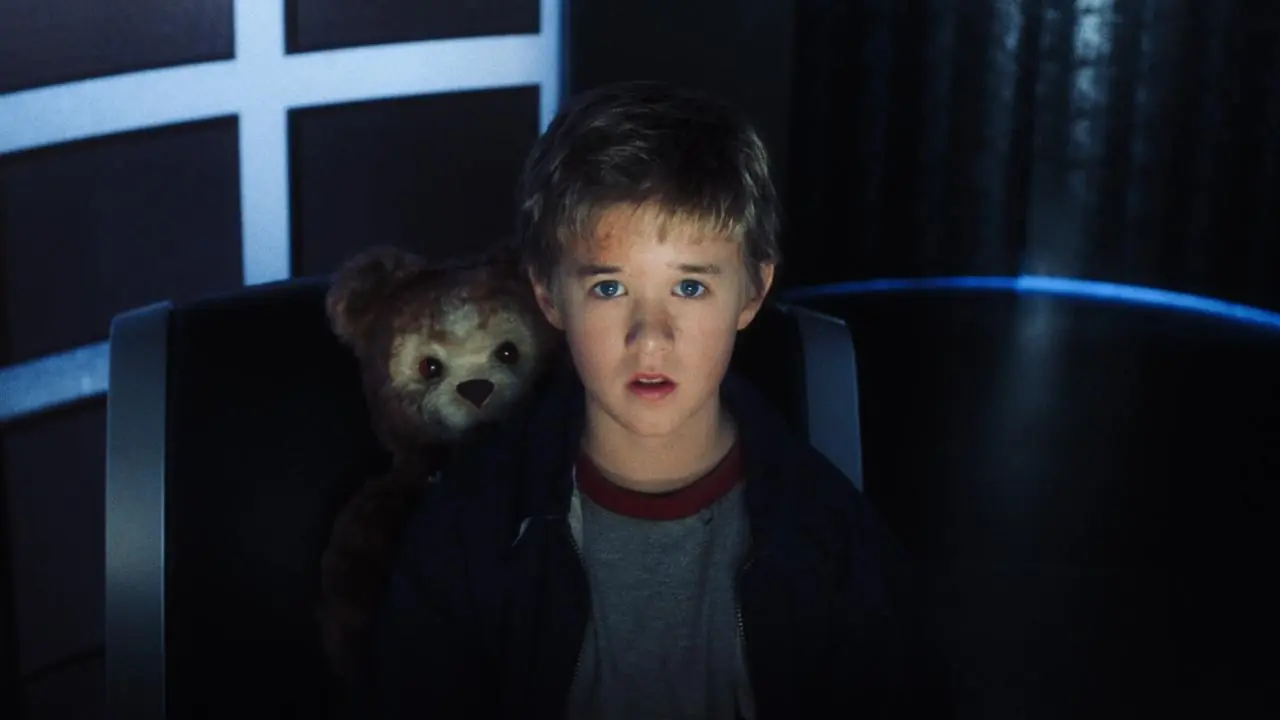
I brought up the shortened history of the project’s transition from Kubrick to Spielberg at the outset for a very specific reason—it seems to me that in its final version, A.I. Artificial Intelligence bears the distinct marks of both these creators. It is a kind of fusion of Kubrick’s cold, mathematical precision and Spielberg’s sentimental, heartwarming tenderness. As Tim Greiving rightly pointed out in his article: If you slice open A.I. and look inside, you’ll find Kubrick’s cold machinery beneath Spielberg’s warm skin. This fundamental contradiction, based on two completely different artistic temperaments, made the film less cohesive, but (quite paradoxically) much more interesting, multilayered, and richer in interpretation. In my opinion, it can be viewed in at least two ways: an optimistic one, analyzing the work in terms of its affinity with the magical fairy tale, and a pessimistic (or perhaps more realistic) one, linked with posthumanist theories, the class system, and the concept of the Anthropocene. In other words, A.I. Artificial Intelligence is both a fairy tale wrapped in science fiction and a very bitter social diagnosis, leaving no illusions about the moral condition of humanity.
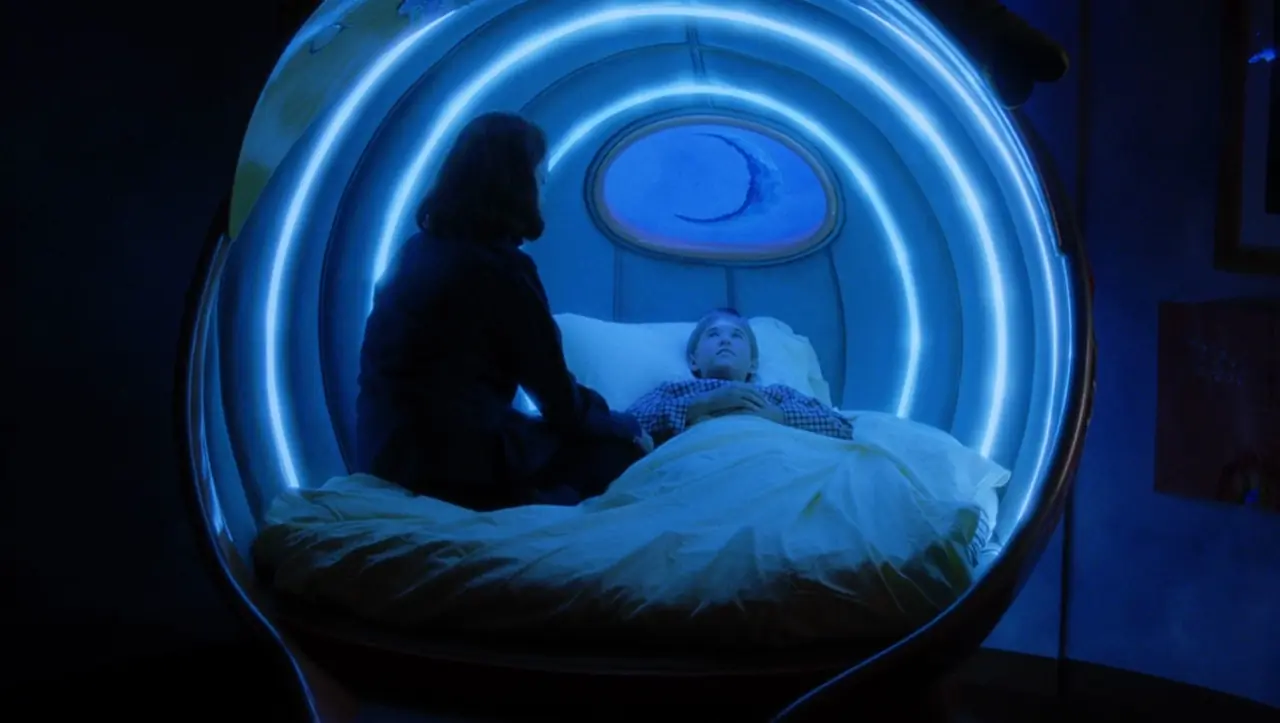
The Story of a Robot Who Wanted to Be Human
The source material for Spielberg’s film, the short story Super-Toys Last All Summer Long, is a mere few-page, two-threaded story in which the domestic affairs of David and Monica Swinton are intertwined with a speech by Henry Swinton during a company event inaugurating the release of a new android model. You would be hard-pressed to find any references to a magical fairy tale in it. The introduction of such elements is the work of the adaptors, especially Ian Watson (it was on the basis of his 90-page treatment that Steven Spielberg wrote his screenplay), working under the watchful eye of Stanley Kubrick, who, according to Sara Maitland, never referred to the beginnings of A.I. Artificial Intelligence in any way other than by using the title Pinocchio.
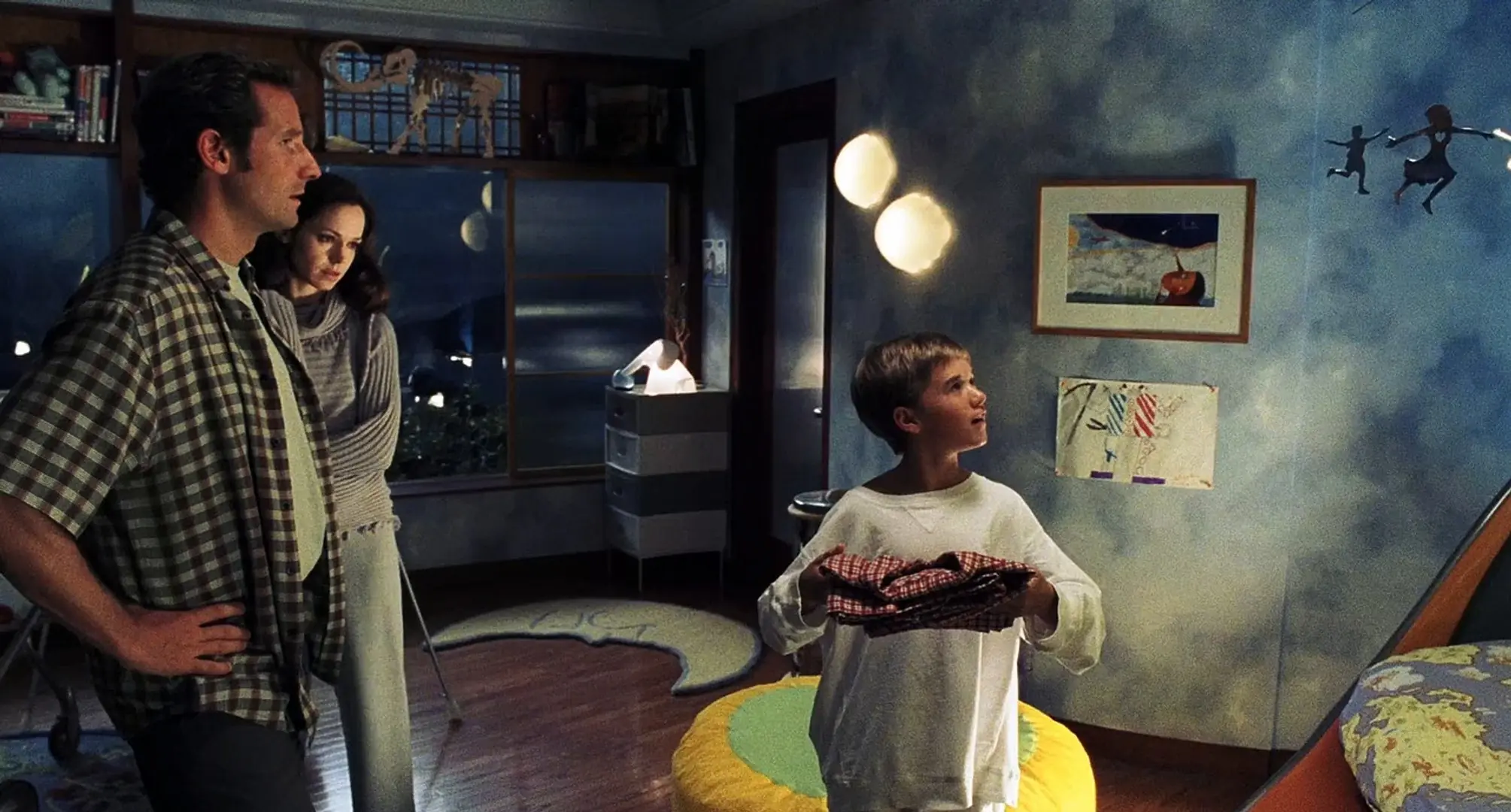
Indeed, it is Collodi’s famous fairy tale that seems to be the main source of inspiration and the most vivid point of reference for David’s adventures. A visual reference to Pinocchio appears in one of the film’s first scenes, set in a hospital. As they walk through the sterile corridors, Henry and Monica Swinton pass a wall that stands out from the rest of the building. It is covered with paintings depicting characters from classic fairy tales. Among the characters from Little Red Riding Hood, Aladdin, or Alice in Wonderland, we can also spot Pinocchio—his image is significantly larger than the other fairy tale characters, making it the most noticeable.
The painting of Collodi’s titular character is not only a clever visual foreshadowing of David’s arrival in the Swintons’ lives but also an intertextual reference to Pinocchio, with which Spielberg begins sketching one of the film’s central issues, recurring throughout its entirety—the question of what it means to be “real,” to be human. Can a product of human labor earn that title? And if so, how?
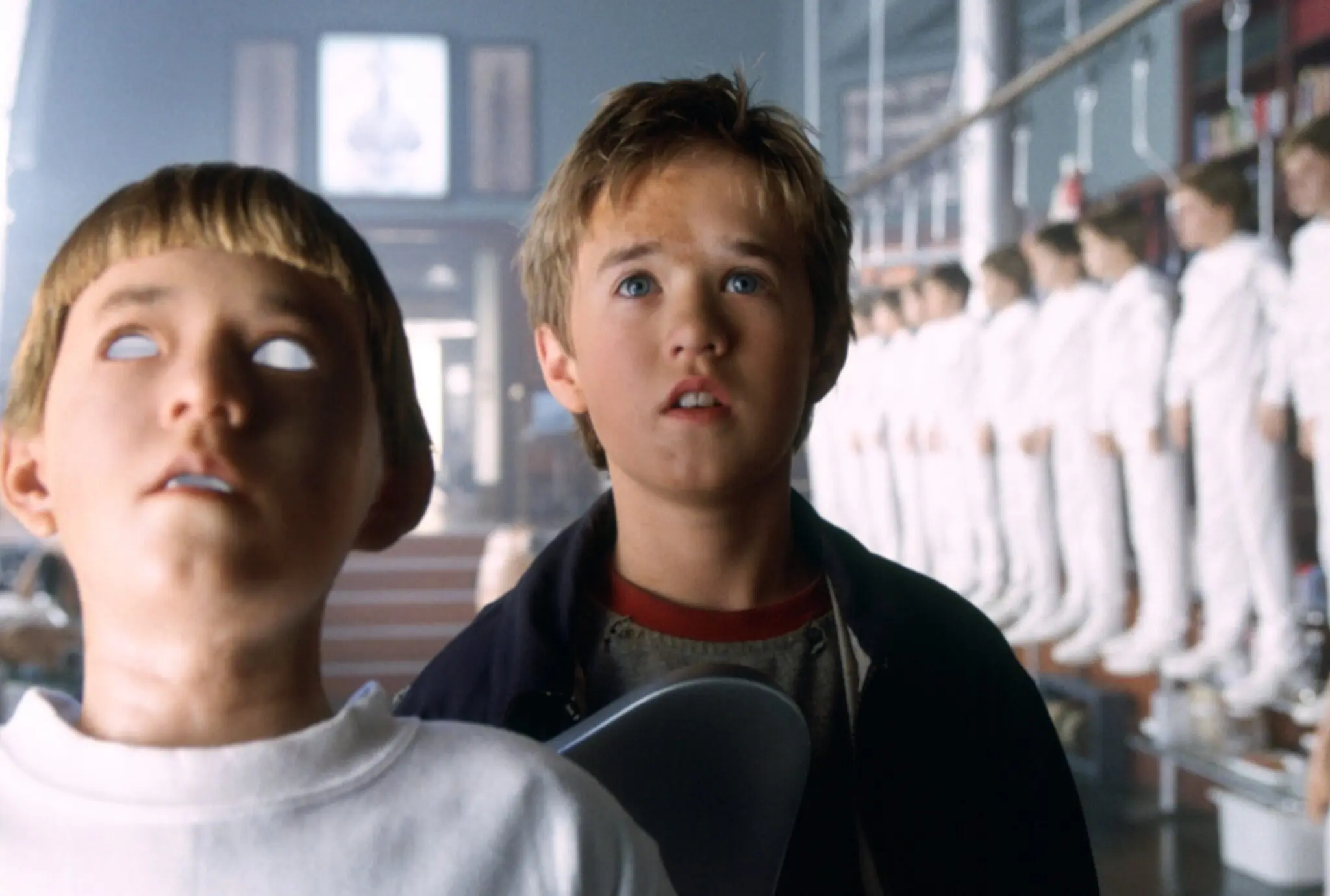
David appears in Monica and Henry’s home just two scenes later. He is an android styled as a child, whose novelty lies in his ability to feel and express emotions, especially love. The Swintons received the first model of such a robot for testing purposes—Henry was selected by his employer, Cybertronics, as the ideal candidate due to a family tragedy (the coma of their son Martin).
Another visual reference to Pinocchio appears when we first see Martin’s bedroom, “inherited” by David. The bed where the robot spends the night strongly resembles the inside of a whale. As Adrianna Fiłonowicz astutely observes in her book A.I. Artificial Intelligence as a Fairy Tale:
First, it is an unmistakable reference to Collodi’s Pinocchio, a novel that inspired the film’s creators—during his adventures, Pinocchio is swallowed by a whale, which the bed’s design might allude to. This prop can also be seen as an intertextual reference to the biblical story of Jonah, who was swallowed by a “great fish.” Interestingly, both these literary works share an intriguing feature: they are strongly didactic. Both Pinocchio, who must overcome his naivety, disobedience, laziness, and selfishness to earn the right to become a real boy, and Jonah, who must overcome his weakness before he can grow into the role of a prophet, share this trait. […] Regardless of which intertextual reference the filmmakers intended, both can direct the viewer’s attention to a didactic interpretation of David’s adventures. However, this is not typical didacticism, which teaches a child that they must behave better after learning from their mistakes. In Spielberg’s film, it seems that it is not the child who is criticized for their flaws but the adults responsible for creating a hostile and hateful world.
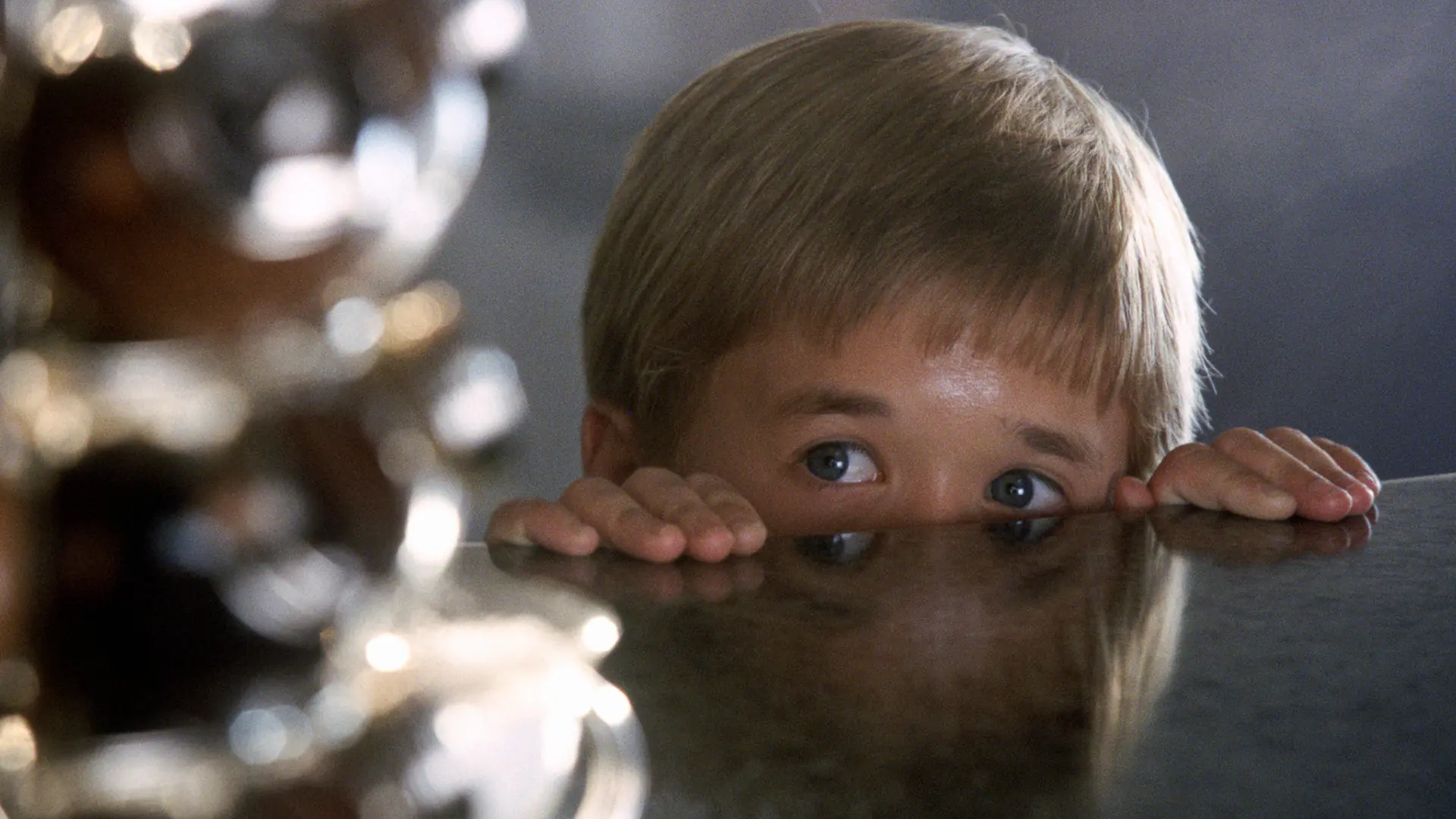
Despite her initial reluctance towards the robot, Monica decides to keep him permanently. To do so, she activates the “imprinting protocol,” which instantly creates an emotional bond between the android and the person initiating the protocol. The protocol is divided into three stages: the character, while gently holding the robot by the neck, must say seven key words, then give her name and the android’s name, and finally say her name again out loud. This protocol scene contains two elements that directly refer to the magical fairy tale. First, the power of the word, which, like the famous Open Sesame! from Ali Baba and the Forty Thieves, can have a real impact on reality. Second, the symbolic, fairy tale numbers, which include three and seven (appearing in fairy tales “because of their magical connotations”), multiplied throughout the film. The number three returns as the number of transgressions preceding David’s expulsion from home (eating spinach, cutting his mother’s hair, the swimming pool incident). The number seven, on the other hand, appears as the number of questions the main character can ask Doctor Know in Rouge City, and the number of candles on the birthday cake in the final sequence of Spielberg’s film.
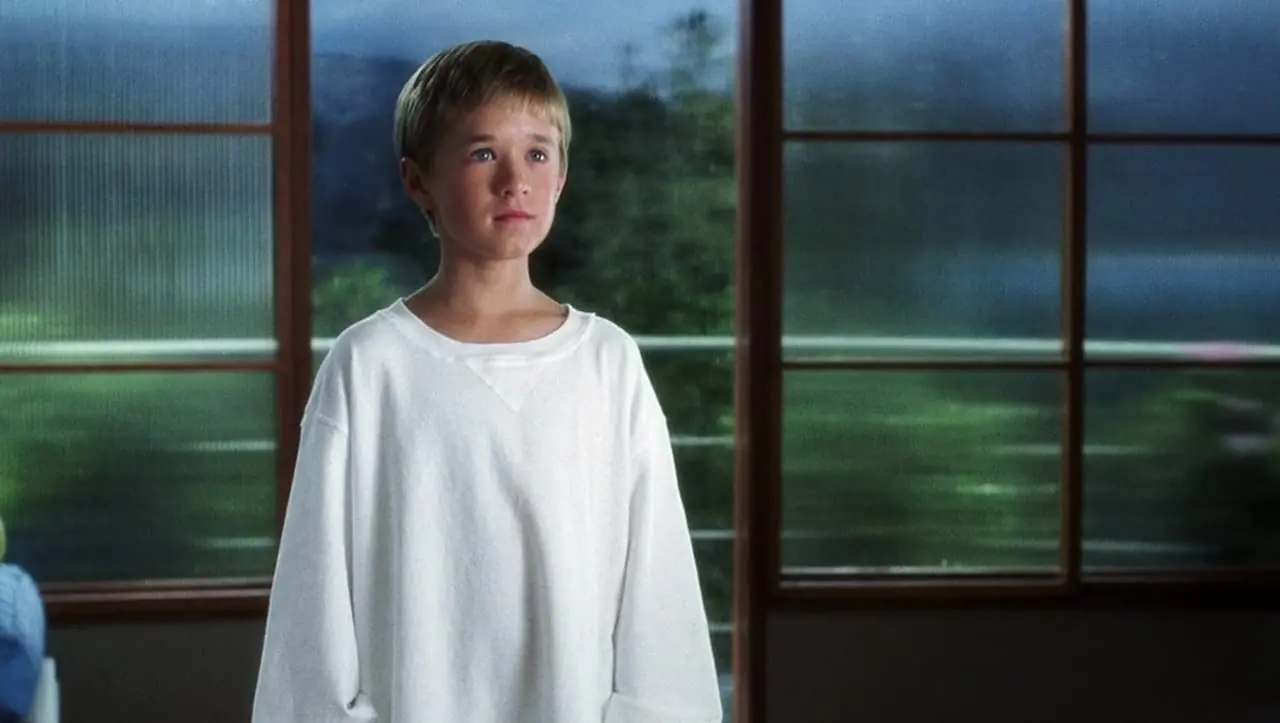
David’s idyll ends when Martin, who has been awakened from his coma, returns to the Swintons’ home. A lopsided rivalry begins between the protagonist and the boy, with Martin being the dominant side, manipulating the freshly born emotions of the android. As Fiłonowicz notes: The competitive relationship that we will observe between David and Martin reflects the fairy tale tendency to depict tense relationships between siblings as the driving force for changes in the oppressed boy, who is ready to go out into the world and have adventures just to catch up with and surpass his brother (the ‘better’ one, not rejected by the parents).
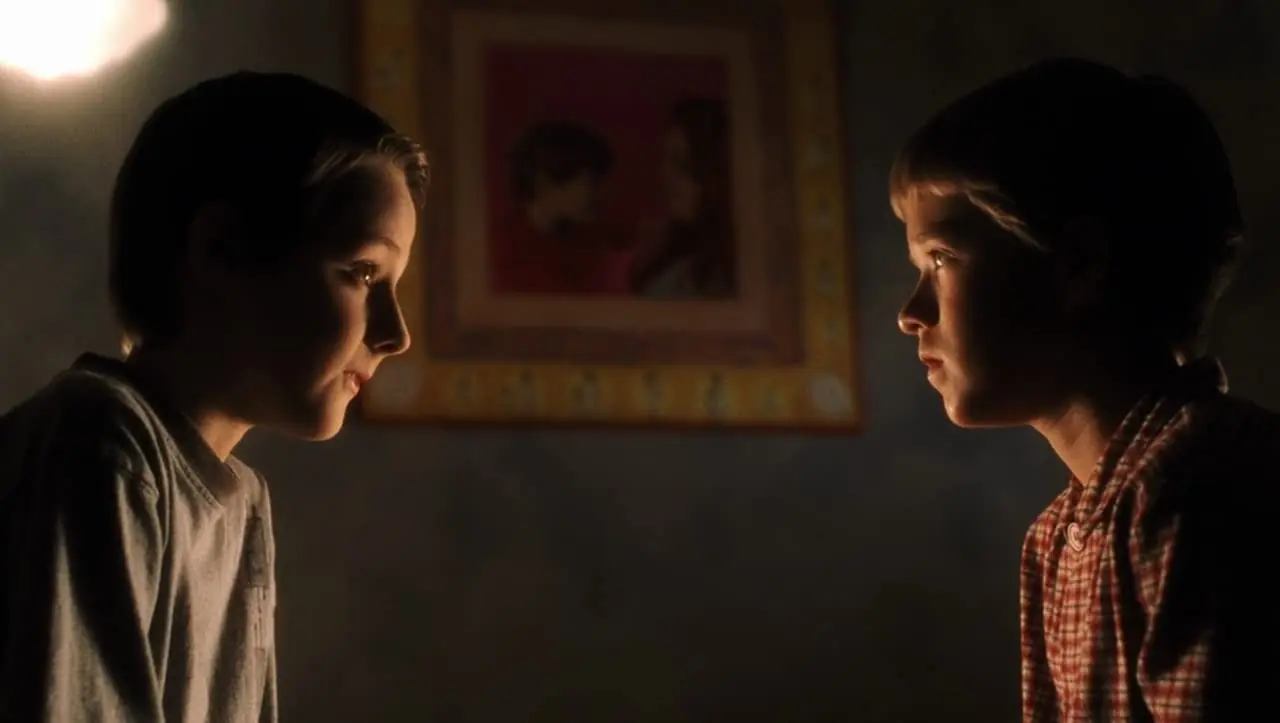
One of the many ways the “real” boy torments his “artificial” brother is by choosing the bedtime story their mother reads to the characters. Martin asks Monica to replace Robin Hood (his favorite fairy tale, which appears for the first time in the aforementioned hospital scene) with Collodi’s Pinocchio. He hands his mother the book with a mocking smile and an ironic comment: “David will love it.” The boy most likely hopes that the reading of Pinocchio will make the robot aware of his artificiality, his inauthenticity—this flaw (and his own superiority) is essentially the focus of every interaction Martin has with his brother, who is treated not as a sentient being but as another “super-toy.”
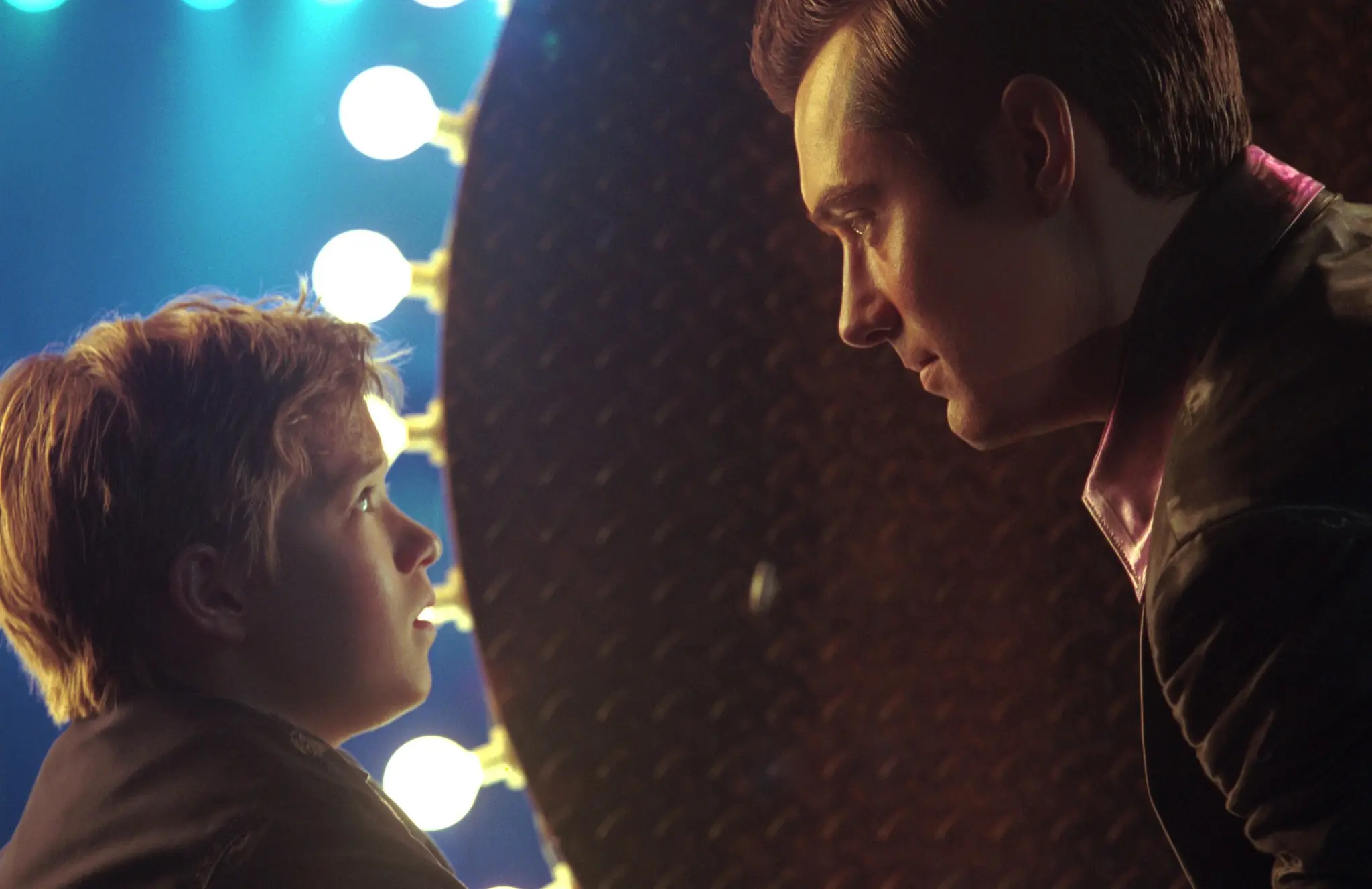
Instead of falling into stagnation and melancholy caused by self-awareness, David finds hope in Collodi’s book. He deeply resonates with the adventures of the wooden puppet, identifying with the main character of the story. It is at this moment that an obsession is born within the android, an obsession that will drive him throughout the rest of the film: the obsession to find the Blue Fairy, a magical being who could transform the android into a real boy, a human of flesh and blood. In this context, David’s subsequent adventures can also be seen as the struggles of a person “possessed” by a cultural text – a cinematic proof of the powerful influence that works of art can exert.
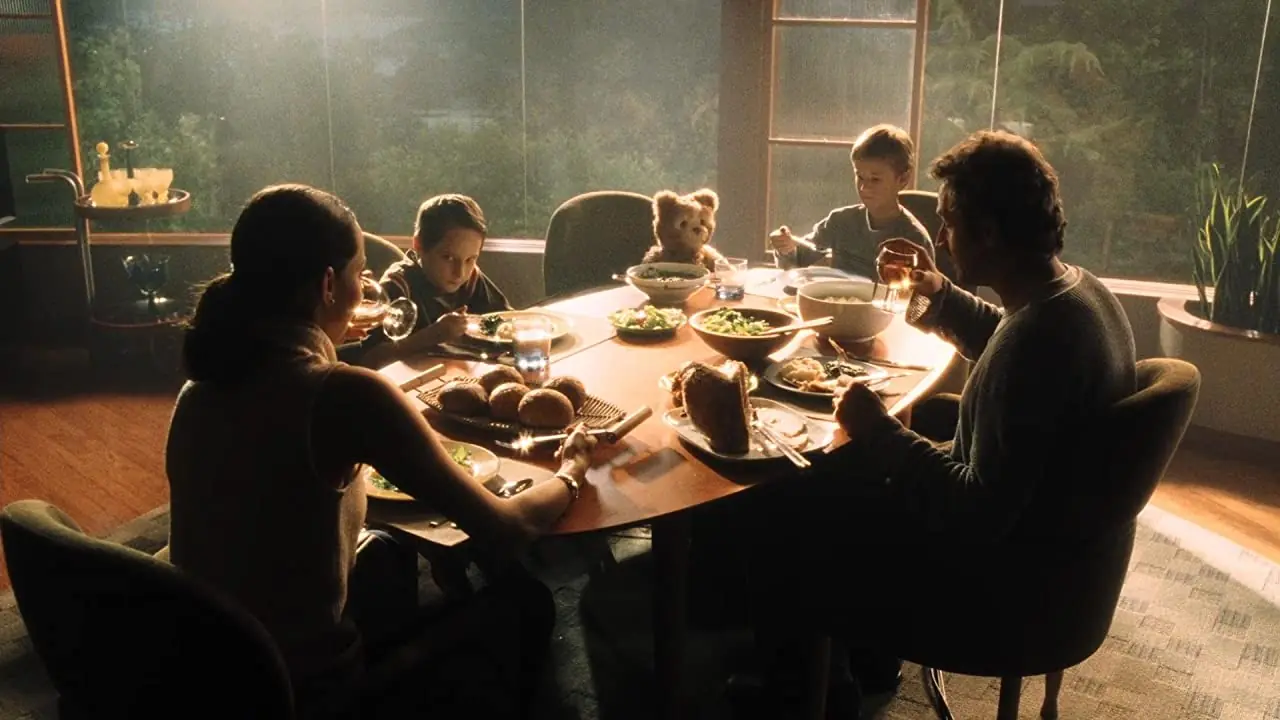
David’s obsession intensifies after he is abandoned by his mother in the forest. The transformation into a real boy becomes the only means that would allow David to return home and regain Monica’s love. As Filonowicz observes: It is hard to imagine a more fairy-tale-like dream than the desire for transformation and the longing to return home. The place where the android’s journey begins is not accidental. The forest is a constant element in the adventures of fairy-tale heroes like Hansel and Gretel, Snow White, or Little Red Riding Hood. Bruno Bettelheim analyzes its significance in the context of fairy tales as follows:
The forest […] symbolizes a place where we explore our inner darkness, where we confront the question of who we are and begin to understand who we want to be. […] Since ancient times, the forest, which is almost impassable and where we get lost, has symbolized the dark, hidden, almost impenetrable world of our unconscious.
At the very beginning of his journey, David faces a deadly serious threat – robot hunters who capture stray androids and then destroy them in a spectacular manner in an arena. Significantly, the mechanical vehicles used by the hunters are styled as wolves – creatures often appearing in fairy tales, usually, as in Spielberg’s film, in a particularly negative role. Along with witches and dragons, they represent perhaps the most iconic set of fairy-tale antagonists (consider, for example, Little Red Riding Hood, The Wolf and the Seven Little Goats, or The Three Little Pigs). However, behind the mechanical wolves in A.I. Artificial Intelligence, there are real monsters – humans burning with inexplicable hatred.
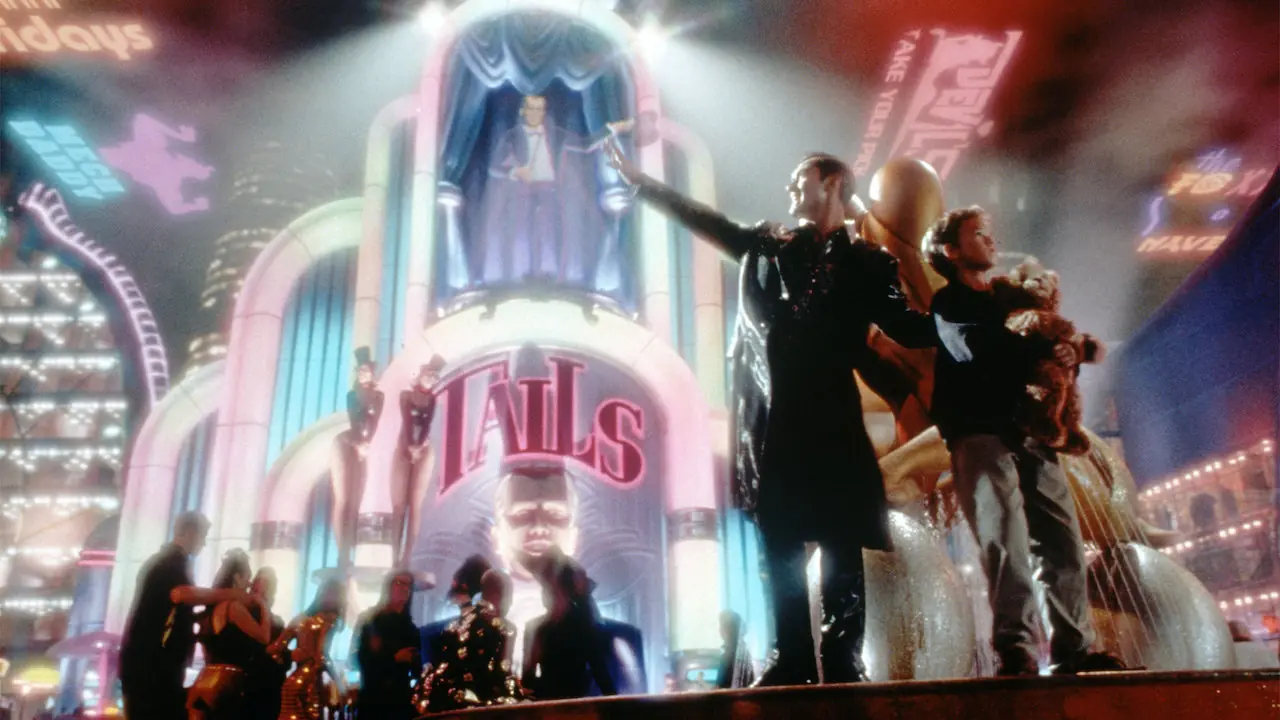
Fortunately, David does not undertake his journey alone. He is accompanied by two “magical helpers”: the robo-teddy Teddy and Gigolo Joe, whom he meets during the forest raid. The first of them is a kind of counterpart to the Talking Cricket from Collodi’s story. He serves as David’s personified conscience, dissuading him from making bad decisions (he warns the android against eating spinach – his advice, however, is ignored, as was often the case with the talking insect in Pinocchio). The second is David’s guide to the future world. He is the only one of the trio who has spent some time in the company of people from a different social class than the privileged Swintons – he is the oldest and takes on the role of the boy’s guardian, even a father. Due to his profession, he also symbolically initiates the protagonist’s sexual initiation process (since the main character is an android and does not experience sexual attraction). Joe’s proposed journey to Rouge City not only represents the next stage of the heroes’ adventure but also serves as an interesting reference to a significant element of the fairy-tale world – the subliminal, strong erotic undertone of these stories, crucial to the initiatory nature of the journey. Interestingly, this character existed in the first version of Winston’s screenplay, and Kubrick reportedly commented on its presence with the telling words: I guess we just lost the children’s market.
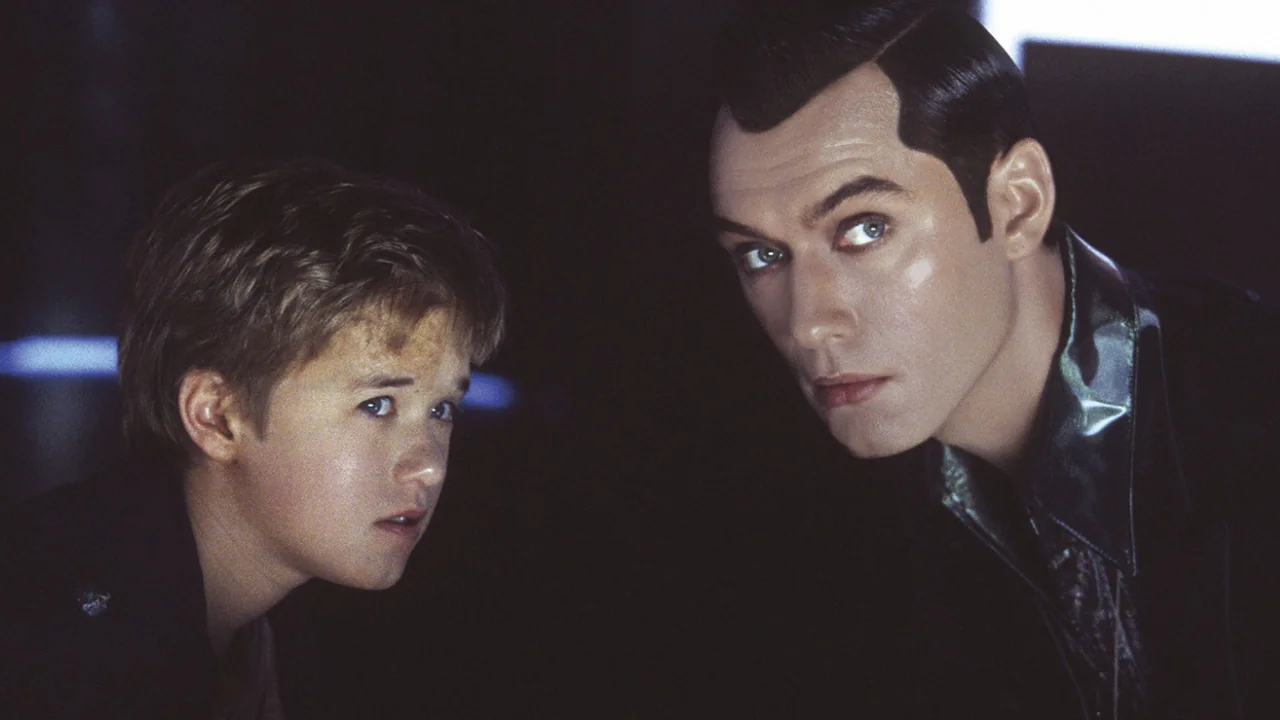
The final location that David and his companions reach is the submerged Manhattan – a fairy-tale “end of the world.” The robot chooses this place as the ultimate destination of his journey because the Cybertronics employees manipulated Doctor Know’s answers in Rouge City in such a way that the protagonist was convinced he would find the Blue Fairy there. However, instead of the desired magical being, he is met by Professor Hobby, the counterpart to Geppetto in Collodi’s tale. Significantly, the protagonist embarks on this meeting alone – the “magical helpers” remain behind the doors, as if sensing that their role ends at this point. The scientist is the mastermind and chief designer of David, whose copies are found in almost every corner of the Cybertronics headquarters. At this moment, the protagonist is openly confronted with the long-repressed, brutal truth – he is not unique. He is not, as Professor Hobby states, one of a kind, but “first of a kind.” And since he is not unique, since there are hundreds of his clones within reach, looking exactly the same and programmed in exactly the same way, David cannot become a real boy. The entire purpose of his existence, the goal of his long and dangerous journey, collapses within a few minutes.
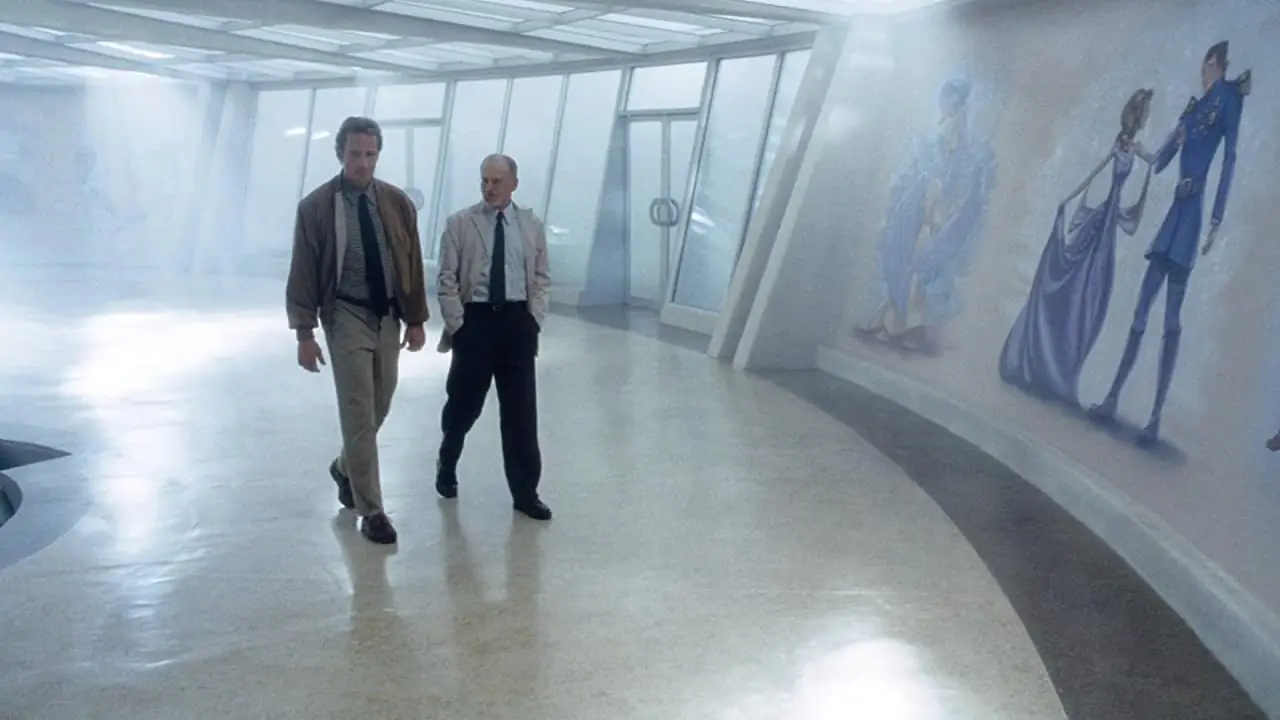
After discovering the devastating truth, David falls into stagnation and melancholy – a state that Martin once sought to induce in him. Sitting on the edge of a skyscraper, he makes one of the most human decisions of his life – he decides to commit suicide, to rest at the bottom of the ocean. As he falls into the water, he is surrounded by a school of fish. In Collodi’s tale, these animals played a significant role – they stripped Pinocchio of the donkey skin he had acquired on the Island of Joy. In Spielberg’s film, they guide the protagonist to the ruins of an amusement park, where a statue of the Blue Fairy stands at the center. David’s lost hope is immediately rekindled.

The robot uses a stolen police amphibious vehicle to approach the statue as closely as possible. He accidentally entangles the vehicle in a Ferris wheel, trapping himself opposite the statue. Staring into the eyes of the Blue Fairy, David endlessly articulates his plea, believing in the magical power of words: Blue Fairy? Please… Please, make me a real, living boy. Please… Blue Fairy? Please… Please… Make me real. Blue Fairy? Please, make me a real boy…
The omniscient narrator (another characteristic feature of fairy tales) informs us that two thousand years have passed. Aliens reach the David trapped in the amphibious vehicle and free him. They then read his memories and decide to reward his perseverance – they take on the role of the Blue Fairy and promise to grant the robot any wish. David asks to be turned into a real boy, but the aliens inform him that this is physically impossible. The android then asks them to bring his mother back to life, as they possess the technology to do so. Thanks to a lock of Monica’s hair (a “magical artifact”), once cut by David and kept by Teddy, this becomes possible – with one very serious condition. The character can return to the world of the living for only one day.
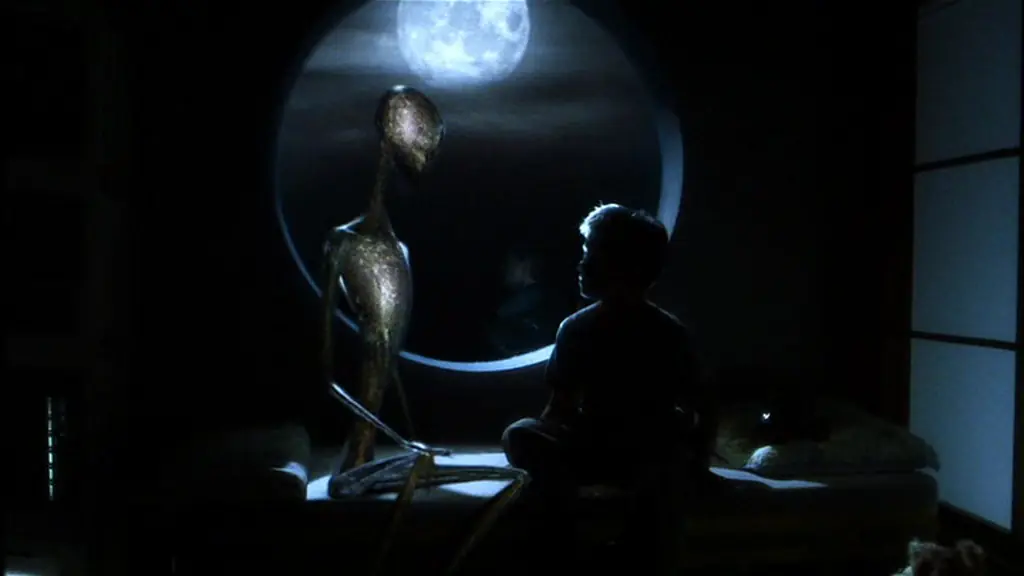
The android spends the happiest 24 hours of his life with Monica. The finale of A.I. Artificial Intelligence is almost a perfect fairy-tale ending, at least according to Bettelheim’s prescription: Just as in so many fairy tales, the ideal state that the little boy dreams of is to spend life solely in the company of the princess (that is, the mother) in circumstances where all the needs and desires of both are met, so they can live only for each other and never part. Although the family idyll is exceptionally ephemeral, David achieves during it what he had hoped for from the very beginning. Just before falling asleep (and, consequently, dying again), the mother directs significant words towards the robot: It’s such a beautiful day. I love you, David. I really love you. I’ve always loved you. With these few (magical) words, Monica makes David finally feel special, loved like a real boy – and nothing more was needed for his happiness.

